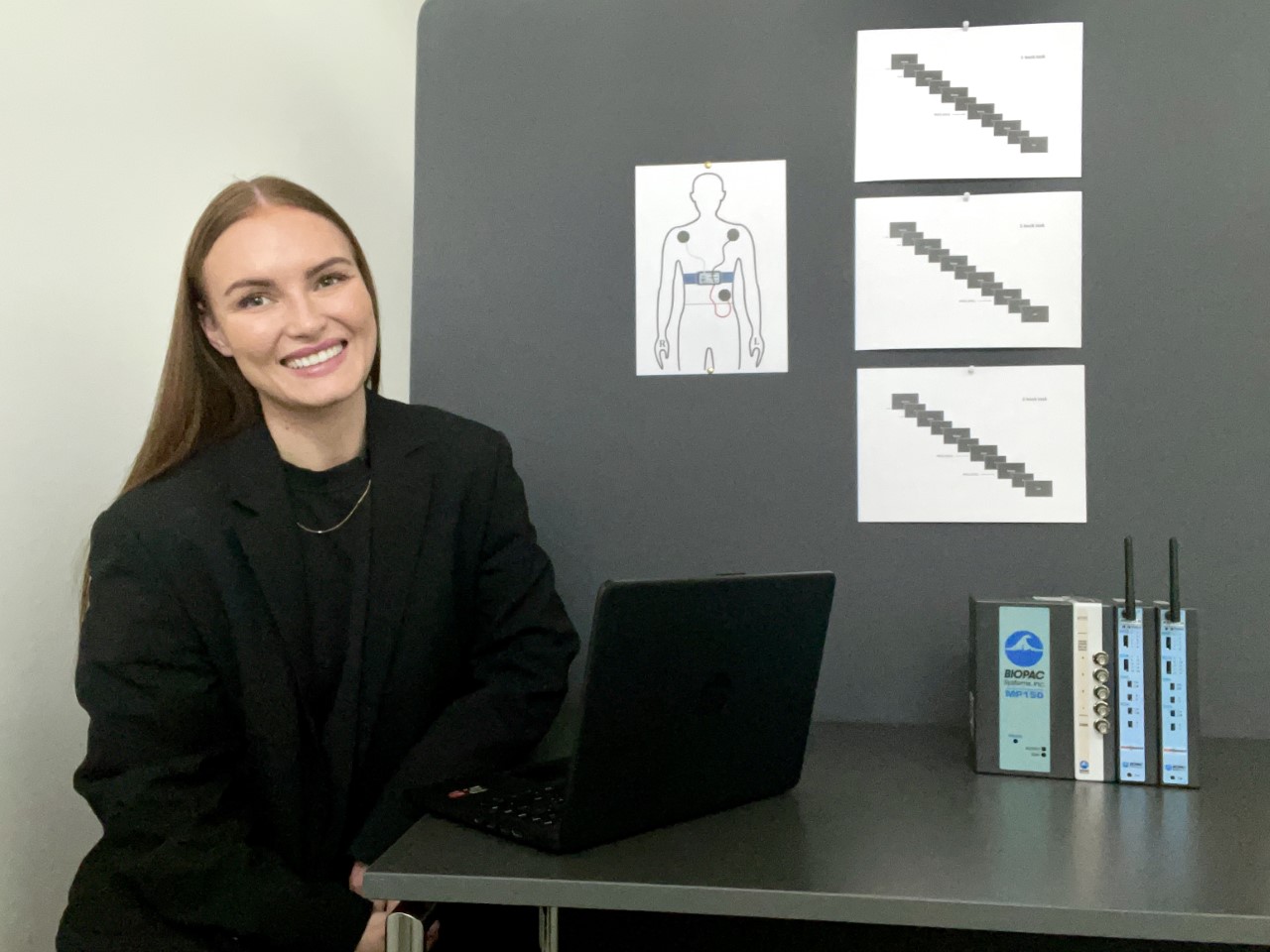Researcher spotlight #37: Nina Nielsen
A short talk with Nina about her research and interests.

Hi Nina, what is your background?
After having worked in the US for a year, I moved to Aarhus in 2015, to obtain a bachelor's degree in Business Administration and Economics as well as a master's degree in Marketing at Aarhus BSS, AU. For the last couple of years I have been working as a research student assistant at the Department of Management, from which I have grown very fond of academia as a profession.
What are your main areas of research, and what do you think makes them interesting and worth studying?
Right now I am working on a project with Marco Hubert and Sascha Steinman where we study social media and how it can distract us in our everyday life. I am very interested in subconscious processes, which is why I also study neurophysiological processes. Social media use has grown exponentially and almost every person in the Western World use social media or is familiar with it and affected by it - whether they like it or not - making it highly relevant to understand the consequences hereof, good and bad. To me, subconscious processes are especially interesting, as they can shape behaviour in ways that we are not necessarily aware of. Everything about our subconscious minds is very fascinating to me.
How did you hear about Cognition and Behavior Lab?
I first heard about COBE Lab when I started my bachelor's degree, and have always thought it sounded pretty cool with all the experiments going on. Unfortunately, I did not have time to participate in any at the time, as I was running by own business, but when I started working as a research student assistant I knew from the start that I wanted to run my own experiments at COBE Lab.
How have you used the lab so far?
I have used the lab to run two experiments to study the neurophysiological reactions to social media sounds compared to analogue sounds and no sounds. Using the BIOPAC has enabled me to measure both skin conductance, pulse, and heart rate of participants while they perform a working memory task on a computer screen. Depending on the condition the participant is prescribed to, a sound appears repeatedly.
The great thing about conducting experiments at COBE Lab is that there is always someone willing to lend a helping hand, and the recruitment process is made very easy as COBE Lab has a large participant pool.
Is there a particular recommendation you would like to pass on to other researchers? Something you wish you had known before you started, or just a useful trick.
A very tangible recommendation: I was recommended to use PsychoPy to build the task for my experiement, and I would like to pass that recommendation on to anyone who has not heard about it. It is very user-friendly, and can be connected to the BIOPAC machine to mark events in the physiological data recording, which is very useful.
A somewhat intangible recommendation: ask for help from the people working at the lab but also the people conducting experiments. That is mainly how I learned using the BIOPAC equipment in the first place.
Could you recommend one academic book to fellow colleagues that you think is of great interest?
A book that opened my eyes to how truly fascinating our subconscious mind is was the book Incognito - The Secret Lives of the Brain by David Eagleman. Really a great (and fairly short) read for everyone interested in learning about the human brain and how it shapes behaviour without us even noticing.
I also really enjoyed The Power of Habit by Charles Duhigg, in which he explains everything about habit formation from a personal, managerial, and marketing point of view.
Away from your research, what do you enjoy doing?
I enjoy reading books, listening to podcasts (especially Tom Bilyeu's Impact Theory), going for walks preferably by the ocean, being with friends and family, watching all kinds of bad reality shows with my boyfriend, cooking/baking, and crossfit, which I have recently gotten into.